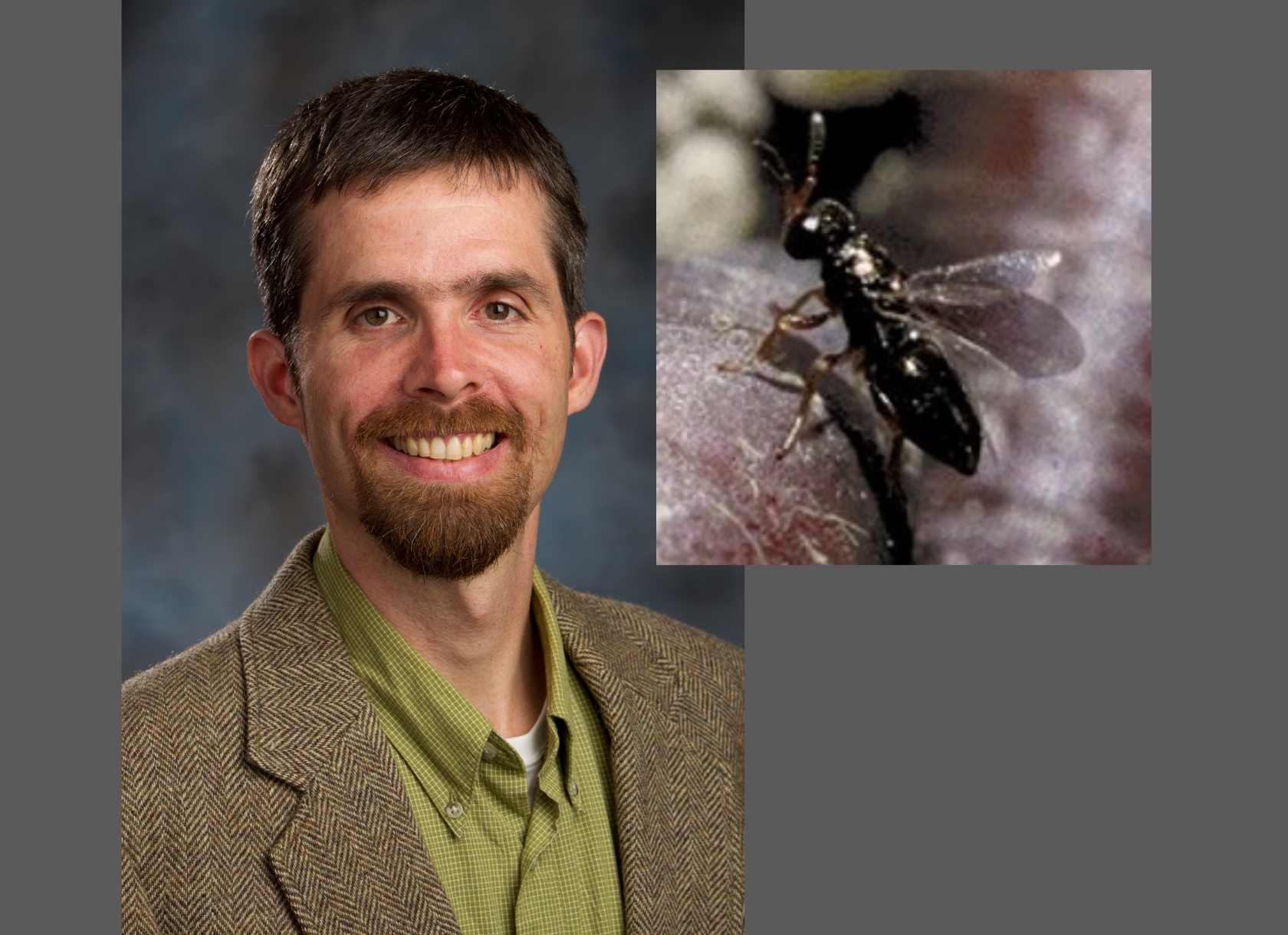
W.M. Keck Science Department Associate Professor of Biology Patrick Ferree received a National Science Foundation (NSF) grant to study how certain “selfish” genetic elements alter inheritance patterns at the molecular level. The study seeks to understand how a certain class of B chromosome, which can cause harmful reproduction effects and sex ratio distortion in jewel wasps, disrupts normal genetic inheritance patterns in plants and animals. The project will receive $923,538 from the NSF over a four-year period and will also facilitate rigorous research training opportunities for a diverse population of undergraduates, with the aim of enhancing STEM retention in higher education.
Although most genetic elements function cooperatively to ensure an organism’s fitness, certain elements—called “selfish”—disobey the normal rules of genetics to gain a transmission advantage. However, this can harm the organism in question. During jewel wasp reproduction, for example, a selfish B chromosome destroys the part of the genome that comes from the father and takes its place, resulting in all-male broods that only carry hereditary material from the mother and the selfish chromosome. While this transmission ensures the ongoing survival of the B chromosome, it is detrimental to the health of the jewel wasp population.
“In a population of sexually reproduced organisms, mothers are essential,” Ferree says. “When you don’t have females in a population, that’s going to have repercussions for the population’s overall health.”
The project will use a combination of modern genomic, genetic, molecular, and cytological methods to study intergenomic conflict, the condition that occurs when selfish genetic elements harm an organism for their own benefit. Ferree’s recent research has revealed a toxin-like gene, haploidizer—the only gene known to underlie selfish chromosome behavior in any organism—is expressed by the selfish B chromosome in jewel wasps. By examining in detail how B chromosomes alter inheritance through individual gene expression, the study may explain why these chromosomes behave so strangely.
The grant will also facilitate the creation of a new laboratory-based molecular biology seminar course in the W.M. Keck Science Department. The course will focus on using a genetic screen to look for proteins in the jewel wasps’ cells that could be targets of the haploidizer toxin. Students from Scripps, Claremont McKenna, and Pitzer Colleges—the three Claremont Colleges served by the department—as well as students from Citrus College, a community college in Glendora, California, will be involved in the research.
“I’m a big believer in engaging undergraduate students in meaningful and relevant questions in biology,” Ferree says. “The students here have a lot of zeal and motivation to accomplish high-caliber work. They bring fresh ideas to the table.”

